Many in Azerbaijan have heard the name of this Lithuanian, including thanks to whom the world learned the truth about Khojaly. Ricardas Lapaitis became a friend to many people in our country, who had never even met him in person, because he shared the pain of the First Karabakh War with them.
The Lithuanian journalist and photojournalist, who found himself on the front line in Karabakh in the early 90s and witnessed injustice and cruelty against its Azerbaijani population, didn’t turn away from what he saw and tried to convey what he had experienced to the world.
After the war, he repeatedly returned to Azerbaijan and became one of the important witnesses of the events of those years, including taking part in the film “Endless Corridor,” where the inhabitants of the Azerbaijani city of Khojaly in Karabakh were brutally murdered.
Our correspondent in Vilnius met with Ricardas and interviewed him.
- In the 1990s, at the height of the war in Karabakh, you, being a very young journalist, decided to come to Azerbaijan, to the war zone. What prompted you to do this?
- My trip to Karabakh at the hottest moment, when there were active battles, had several reasons. Including the personal tragedy of my friend Shahin Babayev, who during the events of Black January [the entry of Soviet troops into Baku on January 20, 1990] lost his brother, who was brutally killed by Soviet soldiers.
At that time, Western countries supported Mikhail Gorbachev as some kind of new prophet, a democrat who is tearing down the iron curtain for many countries. For Gorbachev in the West there was a green light everywhere, he was well received everywhere. In fact, it was the executioner.
The fate of Azerbaijan, the fate of Karabakh was decided in the corridors of the Kremlin. Terrorist and nationalist parties, such as Dashnaktsutyun, who dreamed of a "Greater Armenia", thought that they could create their own mythical kingdom on the territory of modern Azerbaijan. Gorbachev did everything to make them succeed, while remaining a hero in the eyes of the Europeans.
Moscow has always tried not to let Azerbaijan out of its zone of influence, seeing it as a gateway to the East, in addition rich in resources. Armenia was an instrument against Türkiye and the Turkic world. After all, it was Russia that created Armenia on the territory of Azerbaijan.
I saw a great injustice in the fact that Azerbaijan was under an information blockade, while many foreign journalists worked in Armenia. In this information vacuum, terrible things began to happen. International organizations turned a blind eye to what was happening, the world community supported Gorbachev, and real terror, killings and expulsion of Azerbaijanis from their native lands began in the South Caucasus.
- Any war is first of all human grief. What was your impression from the meetings with those who survived the Armenian captivity?
- After the Khojaly massacre, I managed to talk with many people who returned from the Armenian captivity. Someone was redeemed for gasoline, someone for money, or through acquaintances. They returned in a terrible state - mocked, starved, beaten severely. They lived through hell there. Everyone needed medical attention.
The kind of violence experienced by Azerbaijani children, women and the elderly is rare in the history of mankind. When I saw the Azerbaijani prisoners who returned from a real hell, I had no doubts that honest journalists are needed here so that the world knows the truth.
- Was it difficult for you to convey the truth to a foreign audience? Did you receive any support?
- You understand that there were other times then. Now there is the Internet, mobile communications. And then it was necessary to return to Lithuania by train, through Moscow. This takes time, and the situation at the front is already changing.
The Armenians had a strong diaspora in the Baltic countries, and any editorial carefully looked at what was happening in Azerbaijan, they were afraid that the Armenian diaspora could sue and accuse them of slander.
The only thing that saved me was that I was in those places, I saw everything with my own eyes. And so, they accepted my materials, although these reports were terrible in their content, because more than 600 people were killed in Khojaly alone in one night. People were brutally killed.
The Lithuanian public took this information very hard. It was very difficult to write on this subject. Yes, it's not easy right now. It seems to me that no one needs someone else’s pain, it was so and still it is so.
But if the villains are given the opportunity to continue their atrocities, then a similar genocide, as in Khojaly, can be repeated in any country in the world. My duty as a military journalist was to convey the truth in any way, sometimes even risking my life.
- How did the Lithuanians react to the Khojaly tragedy after the publication of your articles and how do they feel now?
- Despite that the Armenian diaspora denied the killings in Khojaly, the Lithuanians began to think that something bad was happening there. They were shocked by the brutality.
In Soviet times, we knew about the events in Afghanistan, but only at the suggestion of the Soviet press. And Karabakh was the first armed conflict in the post-Soviet space. Therefore, the Lithuanians were interested in the conflict, but more information was from the Armenian side.
The Armenians said that they were a small nation surrounded by Turks, that they were being killed and annihilated. And this was perceived quite easily in the Baltics, and especially in Lithuania. Although in fact it was the other way around. Hundreds of Azerbaijani villages were destroyed, because there were not only Khojaly, but also Garadaghly, the Agdaban tragedy and separate massacres.
The Dashnaks wanted as many territories as possible so that not a single Turk would be left there, as they said. And keep in mind that after my article, an article by the Armenian side appeared, which refuted everything. After my speech on the radio, messages from the Armenian diaspora appeared.
And even to this day, it is difficult to convey the truth about Karabakh. Now the whole world supports Ukraine, but we don’t see it in the Caucasus. So far, no one has condemned the aggressor, Armenia, for what it has done on the territory of Azerbaijan. 20% of the territory of Azerbaijan was under occupation for 30 years, and everything was destroyed there - villages, houses, mosques. A terrible picture opened there after the second Karabakh war, and, unfortunately, no one condemned the aggressor country.
- When watching the movie “Endless Corridor,” it is impossible to hold back the tears. You were a living witness to this tragedy. It must be hard to live with those memories. However, not only do you not forget yourself, but you also try to make others remember it. Have you ever wanted to forget about it?
- Any war anywhere in the world, be it Ukraine, Syria or Karabakh, leaves a deep and very sad imprint. Even reading an article about the war leaves an imprint, and here you are a military journalist and you are going to the conflict zone.
I have always been very concerned about the fate of a person. In Karabakh, many Azerbaijani families not only lost a child, or a father and mother. Some large families lost 18-20 relatives. And how can you not react to this?! When you see a child with shrapnel and bullet wounds, how can you calmly look at it?
I volunteered for many years in the frontline zone, I saw how refugees live, I saw that the aggression of Armenian nationalists and politicians affected the lives of many generations, and this life has not yet been restored.
This could not but affect my outlook, my life has changed, my world has changed. But I understood one thing – where justice turns a blind eye, outrages and impunity begin there. There, human life is cheaper than lead. That is why I continue to fight for justice to this day.
- As a military journalist, you have witnessed many wars. Which of the tragedies you have seen, in your opinion, is the most terrible?
- I think that the main thing for which military journalists are needed is to convey the truth.
As for Karabakh, unfortunately, at one time international organizations did not clearly express their position. It must be clearly defined – there is a state border and no formations can be on the territory of Azerbaijan by someone else’s will.
Karabakh is an internationally recognized territory of Azerbaijan. Therefore, I want a peaceful life to come to Karabakh as soon as possible, so that people can return to live there. This is the least we can do for a million refugees.
I will always support the fair position of Azerbaijan with my heart and soul.
- Do you plan to carry out any new project related to Karabakh, with the tragedy of the 90s and victory in 2020?
- I have already visited the liberated territories several times and was shocked by the hatred of Armenian nationalists and politicians towards Azerbaijani cities and villages. Everything is destroyed there - not only houses, cultural objects, but also human life.
For 30 years, the Azerbaijanis hoped to return to free Karabakh and find something of their own, but they saw a sad picture. The entire territory is mined, all property is looted, houses are destroyed brick by brick.
I had a new idea: we need to make a new film, release new photo albums about it, make a book.
I hope that in the near future you will see the fruits of my work.
Sayad Hasanli
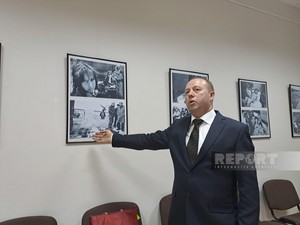
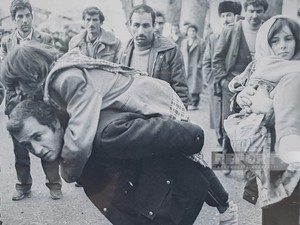
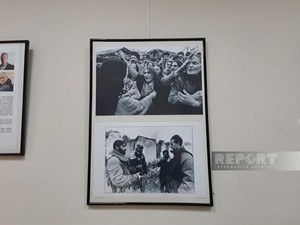
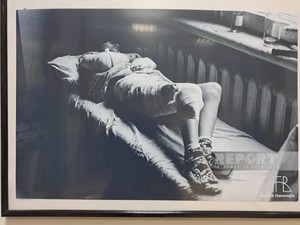
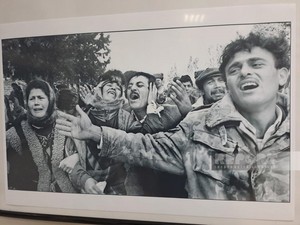
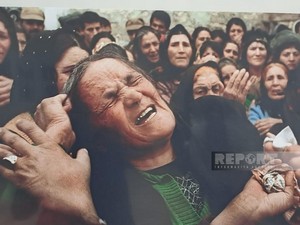
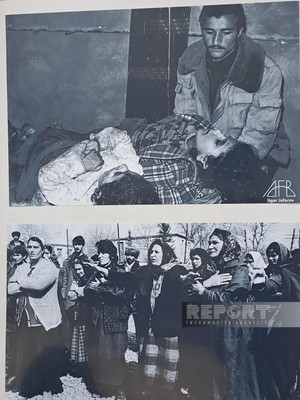
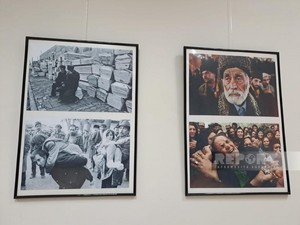
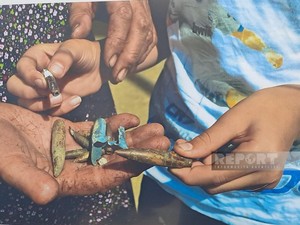
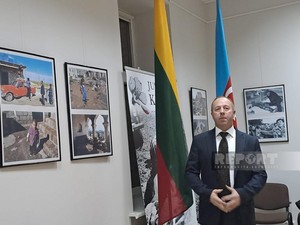
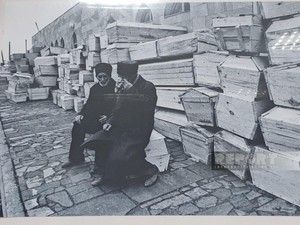
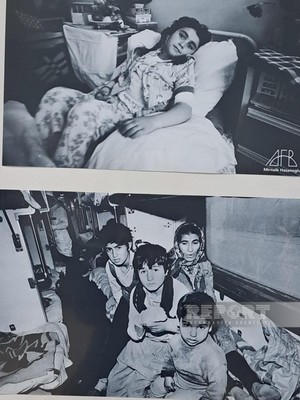
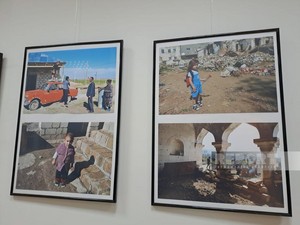
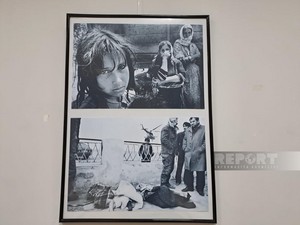


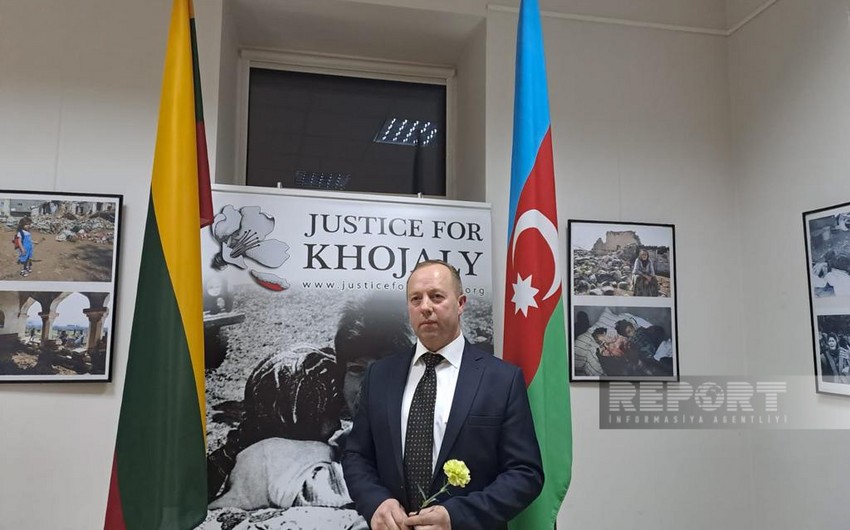 https://images.report.az/photo/806c0750-0a21-3e9a-af5d-92896c0219c5.jpg
https://images.report.az/photo/806c0750-0a21-3e9a-af5d-92896c0219c5.jpg

